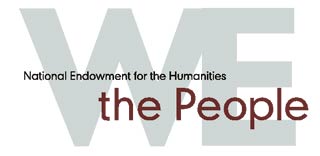The Formation of the Sons of Liberty
Introduction
Colonial agents working in Britain express their concerns over the Stamp Act long before it is passed by Parliament on 1 March 1765. When news of the Act's official status reaches the American colonies in the spring, creative colonists begin planning an assortment of protest activities.
Campaigning for "Liberty and no Stamp-Act," local groups within each colony scheme to prevent the Act from taking effect on 1 November 1765. Adopting names including "Sons of Liberty," these committees stage dramatic spectacles designed to intimidate the stamp distributor in each colony and force him to resign his post. In Boston, protestors take aim at Andrew Oliver. A group of men known as the "Loyal Nine" (forerunners of Boston's Sons of Liberty) recruit the town's mobs to ransack Oliver's home and office in August 1765. Not satisfied with their earlier endeavor, the Sons invite Andrew Oliver to appear under the Liberty Tree for a special ceremony in December. Following the event, the Sons are pleased to boast that the whole affair was "Conducted to the General Satisfaction of the Publick."
The Sons of Liberty expertly use the press to rally colonists to their cause. As of 1 November, however, all newspaper publishers must pay the stamp tax. While some printers cease publication to avoid paying the duties, many other papers (especially those controlled by Sons of Liberty) continue to publish stories designed to humiliate public officials. Published accounts from other colonies denounce each stamp as a "Badge of Slavery." Despite their protests, the Sons of Liberty seek to uphold established government, not overturn it. In many communities, the Sons assume the responsibility of keeping the peace. They also resort to referring to themselves as the "true" or "true-born" sons of liberty to distinguish themselves from the mischief makers among the general population.
Prior to the implementation of the Stamp Act, small bands of patriots (including Sons of Liberty) act largely independent of one another. By the fall, however, many groups seek to strengthen and standardize colonial opposition to the Act through an inter-continental organization. Gradually, the Sons of Liberty in each colony, beginning with New York and Connecticut, establish communication networks and negotiate "Certain Mutual and Reciprocal Agreements" with other Sons of Liberty and related groups in surrounding towns and colonies.
The Stamp Act is ultimately repealed on 1 March 1766, negating the immediate need for an inter-colonial resistance movement. Parliament is not done with the colonies just yet, however, and Sons of Liberty groups remain active in their local communities for years to come. In Boston, colonists continue to gather on 14 August to cultivate "Sensations of Freedom."
Rowe's Revolution
"This afternoon Willm Mollineux was buried -- he has been famous among the Sons of Liberty. Many Things are attributed to him & tis believed he was first Leader of Dirty Matters. "
Diary of John Rowe,
24 October 1774










